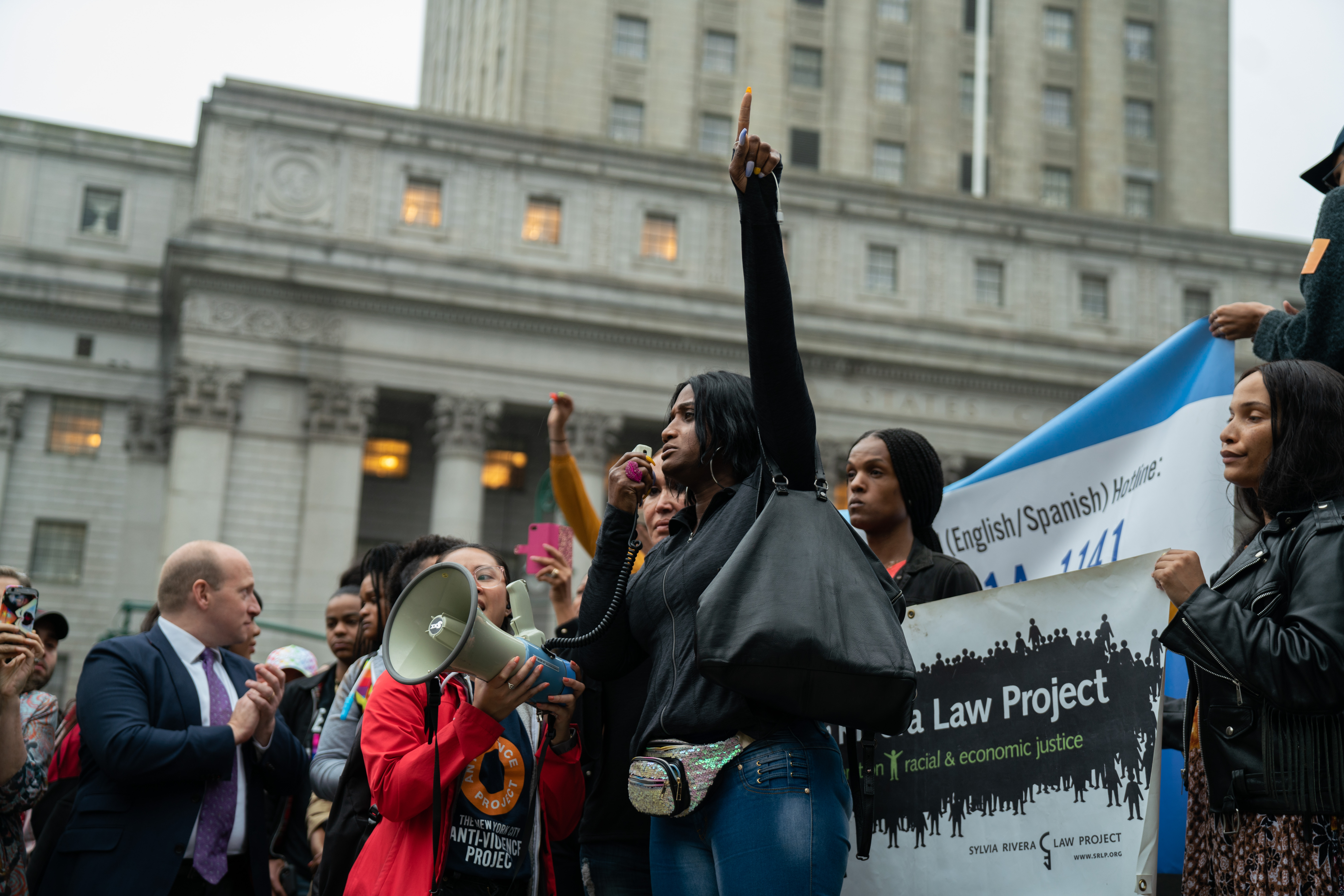The Killing of Trans Women Is Inseparable from Black Lives Matter

Credit to Author: Diana Tourjée | Date: Thu, 25 Jul 2019 12:49:25 +0000
Year after year, Black women represent the majority of known transgender murder victims in the U.S. But this year, the racial disparity in those acts of violence is as stark as it can be: Every transgender person reported murdered in the U.S. has been a Black woman.
At 4 AM on July 20th, 29-year-old Denali Berries Stuckey of Charleston, South Carolina, was found shot to death on the side of a road. Stuckey’s death is being investigated as a homicide, according to reports, making her the 12th known Black transgender woman murdered this year. While it’s long been known that Black trans women are disproportionately affected by violence, this latest string of murders has brought new clarity to the inseparability of anti-trans and anti-Black violence.
If we don’t acknowledge the racial component to this crimes, we fail to properly understand why they’re happening, and how to make them end. Few understand this as well as the activists behind anti-racist movement Black Lives Matter.
“Black trans women are the most marginalized community members in our society,” said BLM co-founder Patrisse Cullors. “They experience the most violence.”
Cullors’ statements are borne out in the data. One in 2,600 young Black trans women will die by violence, according to Unerased, a 2015 report detailing the crisis facing trans communities. In comparison, in the general population, only one in 19,000 individuals die by violence per year, meaning young Black trans women are more than seven times as likely to be murdered than the average American.
This horrific disparity shouldn’t be shocking, considering the racialized inequity found across all social institutions in the U.S., from employment to housing. Black trans people are twice as likely to be unemployed and more than twice as likely to live in extreme poverty than trans people of all races, according to a survey by the National LGBTQ Task Force. In addition, 41 percent of Black trans people reported having experienced homelessness—five times the rate of the U.S. general population. In addition, because of these circumstances, trans women of color are often forced into survival sex work, a highly dangerous and criminalized occupation for trans women.
In other words: Black trans women aren’t simply at risk of being killed because they’re trans; the social conditions responsible for their deaths represent a holistic crisis, spread across every aspect of life. In a country that continues to fail to acknowledge ongoing, systemic anti-Black racism, and that is without protections against anti-trans discrimination, Black trans women fall into the most dangerous position.
“Anti-Blackness is at the center of the murder of Black trans women,” Cullors said.
While Black Lives Matter’s primary focus is on police terror, the systemic inequality at the root of the crisis of Black trans murders fits it squarely into the movement’s agenda. In fact, Black trans people are partly responsible for the BLM uprising itself. “There has been leadership from Black transgender people from the very founding of [the Black Lives Matter] movement,” said Kei Williams, a Black trans person and activist. “We’ve been here and we will always be here.”
In recent years, the epidemic of fatal violence against trans women has become more visible in mainstream media. Still, it is rarely framed as an issue shaped by racism as well as transphobia. But that could soon change. According to Cullors, she’d like to see Black Lives Matter more publicly claim a stake in the crisis.
“I think this current movement has worked to support Black trans women,” Cullors said. “But our movement, collectively, has not been as present for these murders.” She sees a need for wider organization against anti-transgender violence within Black Lives Matter, allyship with the efforts of transgender activists, and support for “Black trans women who are living.”
“The fight for Black trans people, and women in particular, is critical for the health of Black communities,” said Cullors.
Sign up for our newsletter to get the best of VICE delivered to your inbox daily.
This article originally appeared on VICE US.